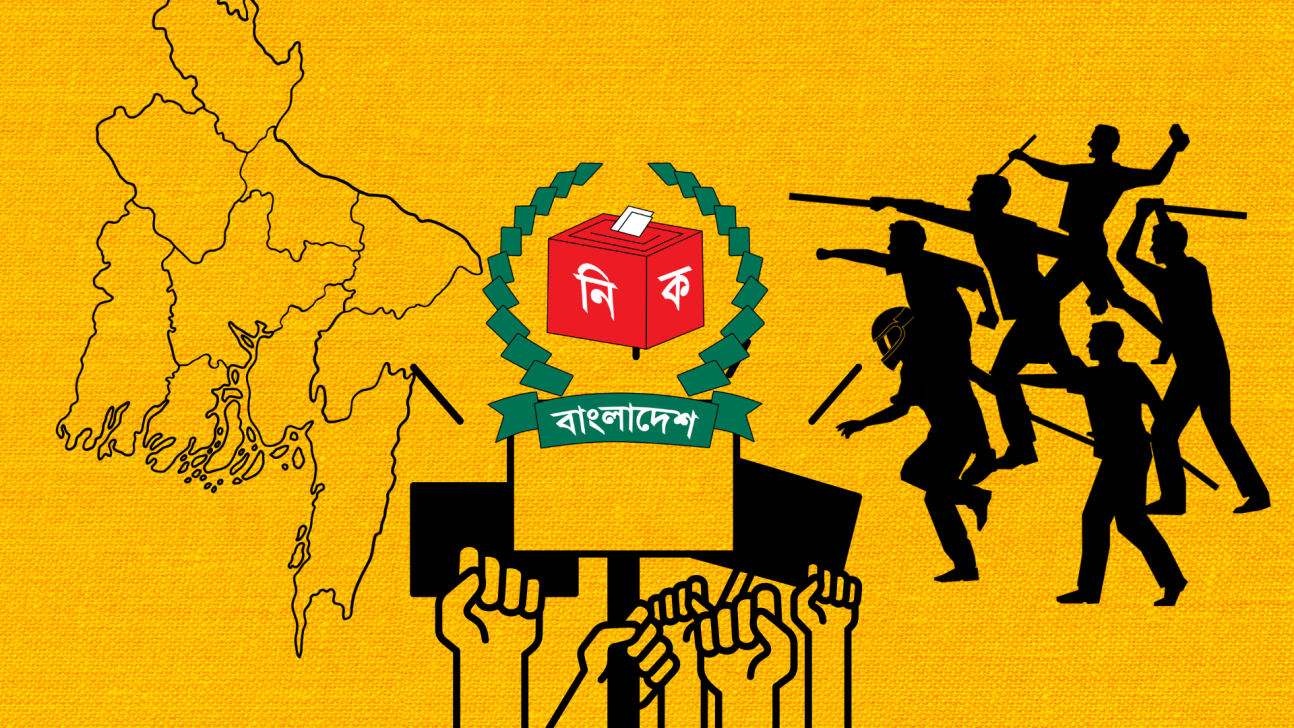Bangladesh needs pragmatic gradualism in nation-building

A state is not a debating society; it is a ship that needs a steady hand at the wheel. But a captain who ignores the compass (the law) and silences the crew (the people) will eventually run aground. In this spirit, institutional reform in nations like Bangladesh is a complex journey.
Formal institutions often give way to deeply entrenched informal practices. Given how resistant these informal ways are to change and the political challenges, pragmatic gradualism is the optimal way for achieving lasting reforms. This requires addressing criticisms that small steps might be undone by larger, interconnected problems, which some believe demand a "big push."
The max-min principle, where the maximum number of parties agree on a minimum set of urgent measures, tackles institutional "stickiness." The approach can realistically lead to a Common Minimum Reform Programme (CMRP). This process reduces overt resistance and makes reforms politically viable.
Yet, putting CMRP or the July Charter, as has been dubbed by the National Consensus Commission, into action requires a strong executive to translate it into reality by navigating political complexities, bureaucratic hurdles, and vested interest clutch. Crucially, for gradual reforms to succeed, a strong executive is essential.
The July uprising highlights the urgent need for new norms that go beyond simple management fixes, paving the way for ensuring power that truly serves the people.
Why gradualism is essential
In Bangladesh, vertically and horizontally linked informal institutions like patronage networks often control how formal institutions actually work. These informal structures are incredibly resilient and tend to revert to their original state. A radical overhaul, despite its appeal, risks severe backlash, instability, or a failure.
South Korea in the 1960s-80s carefully sequenced reforms—first building export industries, then slowly liberalising finance—while maintaining state oversight to prevent shocks. Botswana combined gradual economic diversification with steady institutional strengthening, avoiding "resource curse" of states such as Nigeria that affected nations with more radical approaches.
Conversely, Russia's 1990s "shock therapy"—rapid privatisation and market opening—led to economic collapse and oligarchic control, showing the dangers of big-bang reforms without strong institutions and capable leadership. Ad hoc incrementalism—piecemeal reforms without a long-term vision—results in policy reversals and stagnation in many developing countries.
Critics rightly point out that interconnected problems might hinder incremental reforms. For example, anti-corruption efforts might fail without judicial independence. This echoes the "big push" theory, which argues for simultaneous, coordinated reforms across many areas to avoid bottlenecks. The classic argument, nevertheless, remains relevant that, as Albert Hirschman stated, if developing countries had the capacity for a "big push," they would not be underdeveloped. Pragmatic gradualism, instead, encourages endogenous reforms.
Why strong executives are crucial for reform
A strong, commanding executive is vital for driving development, especially in countries like Bangladesh. Yet, without robust checks, power inevitably corrupts.
India's "Licence Raj" showed how weak executives allowed bureaucrats to stifle the economy. The "Bureaucratic Trap" shows that without a decisive executive, unelected officials become the real rulers, delaying or sabotaging policies. Pakistan is a case in point.
History offers examples of strong executives fostering development, strengthened by checks. Lee Kuan Yew ruled Singapore firmly, fighting corruption and achieving growth. He also kept courts clean and let technocrats work freely, not as rivals but as state tools. His power was centralised for action, crucial for pragmatic gradualism, yet not arbitrary. It operated within a framework of meritocracy and integrity that enhanced his effectiveness.
Bangladesh's own history confirms this. The 2006-2008 caretaker crisis showed the dangers of a weak executive. This lack of strong executive leadership prevents structured, pragmatic reform.
While a strong executive is necessary for reform, power, like a tiger, must be strong enough to hunt, but kept in a cage so it doesn't eat the zookeeper. Many "democracies" have superficial checks. Mexico under PRI rule had elections, but bureaucrats ran everything. Egypt today has courts and parliaments, but real power stays with generals. This is the worst of both worlds.
To navigate this, Bangladesh needs decisive executive command with genuine guardrails. First, "let the executive lead" means cutting red tape, empowering elected leaders to remove obstructive bureaucrats, and speeding up decisions—actions vital for gradual reforms. Second, executive strength must be countered by the imperative to "keep courts and parliament alive." Their role is to check corruption, abuse of power, and violation of rights. Finally, the "stealth state" problems—arising from opaque power of unelected bureaucracy, businesses and NGOs—undermine democracy through shifting power to shadowy interests.
Recent discussions about "direct democracy," "deliberative democracy," and "countervailing citizen power," etc are important. These valuable concepts, however, might risk becoming mere administrative fixes rather than empowering the people as the source of power.
Steering the ship towards nation-building
Reform is a marathon, not a sprint. The big-bang overreach risks collapse or reversal, as history shows. Bangladesh's age-old wisdom proves that the tortoise often wins the race. Pragmatic gradualism is thus a necessity in Bangladesh's complex reform landscape. It also requires a strong, decisive executive who can act, but whose power is rigorously guarded by independent judicial, parliamentary and media oversight.
Just as a ship needs a captain with a steady hand to navigate turbulent waters, guiding it with command while respecting the compass of the law and the voice of the crew, Bangladesh requires an executive that can act decisively towards a future where the people are the true navigators of their own destiny.
Dr Rashed Al Mahmud Titumir is professor in the Department of Development Studies at the University of Dhaka.
Views expressed in this article are the author's own.
Follow The Daily Star Opinion on Facebook for the latest opinions, commentaries and analyses by experts and professionals. To contribute your article or letter to The Daily Star Opinion, see our guidelines for submission.




 For all latest news, follow The Daily Star's Google News channel.
For all latest news, follow The Daily Star's Google News channel. 




Comments